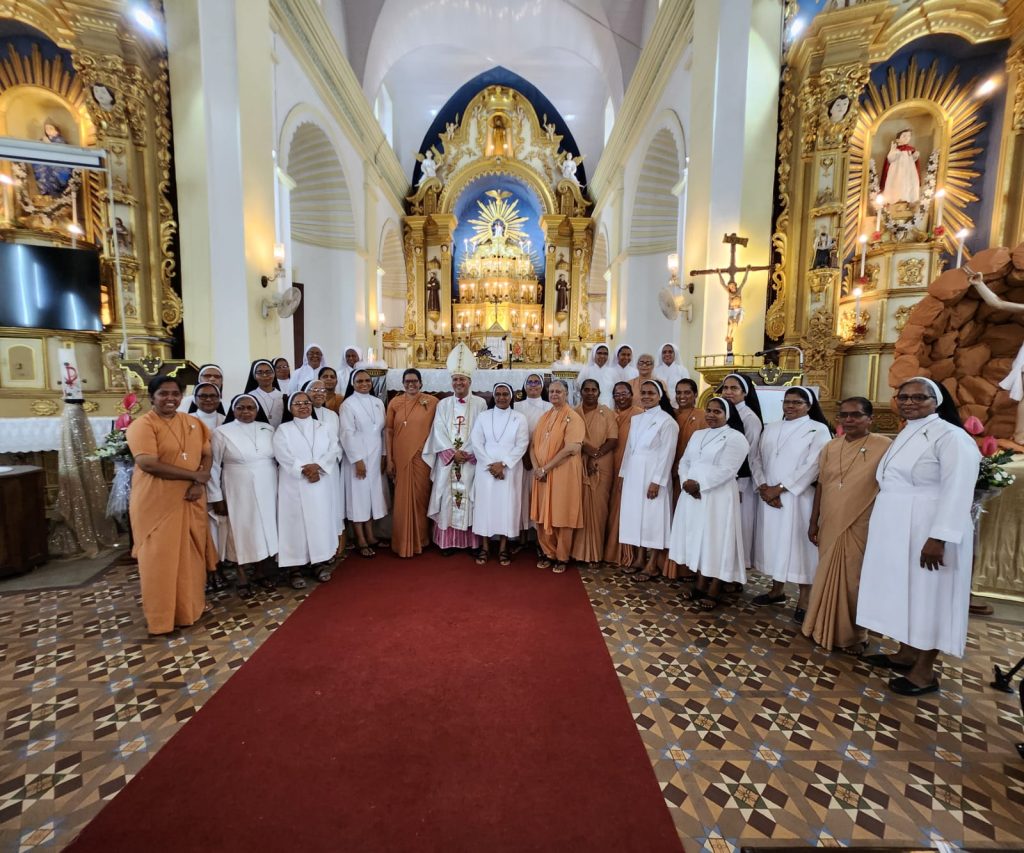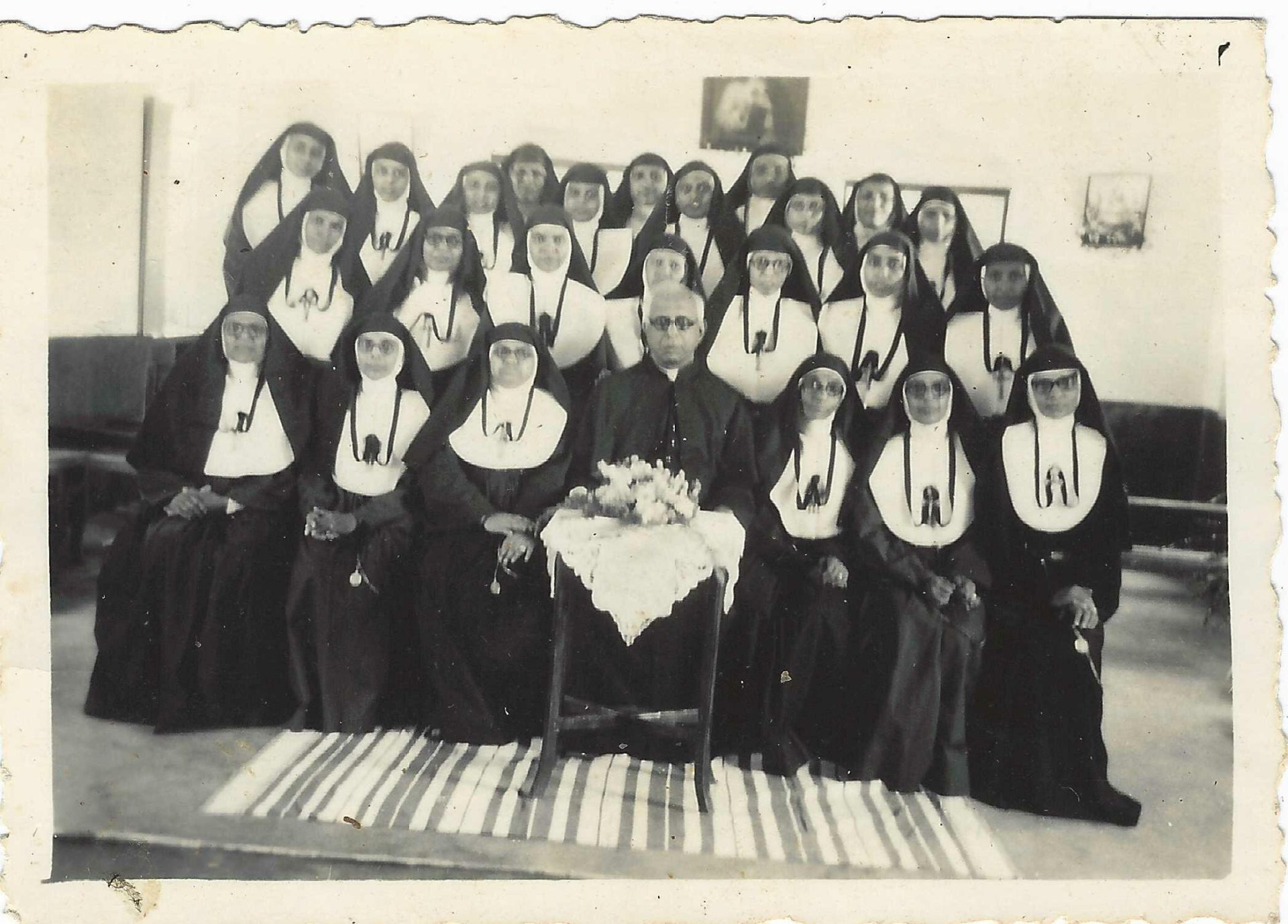On June 16th, a significant milestone—“Seeds of Grace, Resonating Hope”—will be celebrated as the Holy Family Sisters commemorate their 90th anniversary of the founding of the congregation.
This momentous occasion marks nine decades since the congregation’s inception, a journey set in motion by the vision and unwavering dedication of their esteemed founder, Fr. Faustino de Souza.
As we reflect on this remarkable anniversary, we delve into the rich history, enduring spirit, and profound impact of the Holy Family Sisters, whose mission of service and compassion has touched countless lives over nearly a century.
Historical Context: Seeds of a New Beginning
The Archdiocese of Goa had a rich history of religious orders until 1833, when King Dom Pedro of Portugal suppressed all religious institutes in his dominion, including the colonies. This ban, lasting nearly a century, ushered in a “Dark Age” for the Church in Goa, significantly impacting its religious and social fabric by creating a void in essential services.

The rise of Salazar and the Estado Novo in Portugal changed this environment, allowing for the resurgence of religious life. Fr. Faustino’s initiative to establish a new order directly responded to this historical disruption, aiming to restore vital services to the Goan community.
Fr. Faustino’s Vision for an Indigenous Congregation
Fr. Faustino keenly observed that Goans called to religious life had to join orders outside Goa. This fueled his conviction that an indigenous religious order, rooted in local soil, was urgently needed. This aspiration remained a cherished project close to his heart, driven by a deep desire to provide opportunities for religious life within Goa’s cultural context.
Initial Steps Toward Realization
As a dedicated diocesan priest serving at Our Lady of Snow Church in Raia and later as pastor of the Sancoale parish, Fr. Faustino recognized the shifting political climate under Salazar as an opportune moment. His initial efforts involved founding the First Congregation and bringing Franciscan Brothers to Duler in 1928.
He then sought authorization from Archbishop-Patriarch Dom Theotonio Vieira de Castro. Encouraged, he reached out to the Bethany Sisters of Mangalore, requesting their assistance in training the initial candidates. His request received a positive response, paving the way for the new religious order. Fr. Faustino’s strategic approach—seeking ecclesiastical approval and collaborating with an established order—demonstrated his foresight and resolve in overcoming historical challenges.
The Founding of the Holy Family Sisters: First Candidates and Their Training
The foundational step involved sending the first aspirants to Mangalore for formation on March 9, 1933. Three dedicated young women—Sr. Estelita Coutinho (later Mother Josephine), Sr. Abelina Braganza (Mother Joana), and Sr. Sabina D’Souza (Mother Nativity)—began this journey under the Bethany Sisters. A fourth, Sr. Assuciana Silveira (Mother Edith), soon joined them.
After a year of intensive training in Mangalore, these sisters returned to Goa to continue their novitiate. The Bethany Sisters generously supported this by continuing formation in Goa, utilizing St. Joseph Vaz’s ancestral house in Sancoale. This reliance on the Bethany Sisters underscored the supportive relationships within the religious community, providing a crucial spiritual and practical foundation.
Official Establishment: A New Congregation is Born
Fr. Faustino’s vision and the dedication of these first sisters culminated on June 16, 1935, with the official founding of the Congregation of the Sisters of the Holy Family of Nazareth, as the first candidates professed their vows. This date marks the formal birth of the religious order in Goa. Mother Joana led the nascent congregation as its first superior, signifying the realization of Fr. Faustino’s long-cherished aspiration for an indigenous women’s religious order in Goa.
Canonical Erection
While founded in 1935, the congregation’s formal recognition by the Catholic Church came later. On March 25, 1952, Patriarch Dom Jose da Costa Nunes canonically erected this pious union as a religious congregation, granting it formal status and legitimacy. Subsequently, on August 20 of the same year, the Patriarch approved the congregation’s Constitutions, outlining its guiding principles.
These Constitutions underwent revisions in 1971, 1978, and again after the 1983 Code of Canon Law, demonstrating the congregation’s commitment to aligning with Church law and adapting to contemporary contexts. The 1952 canonical erection was a significant milestone, signifying the Church’s official endorsement of the Holy Family Sisters.
Charism, Mission, and Activities of the Holy Family Sisters
The fundamental charism animating the Holy Family Sisters of Nazareth is “to share the providential love of God by serving the poor and needy.” This core principle underscores their unwavering commitment to serving the most vulnerable in society, mirroring their founder, Fr. Faustino, who embodied the spirit of a “missionary of hope” for the marginalized.
Mission and Objectives
The Holy Family Sisters’ mission encompasses liberating individuals from ignorance, error, superstition, oppression, and both temporal and spiritual misery. A central objective is to disseminate the Good News of Christ, collaborating with the local Church in evangelization, Christian doctrine, and religious formation.
They are dedicated to the holistic development of individuals on the margins of society—addressing both spiritual and social well-being, empowering communities by tackling the fundamental causes of their challenges.
Diverse Activities and Ministries
To realize their charism and mission, the Holy Family Sisters engage in a wide range of activities. They are actively involved in formal and non-formal education, pastoral work, catechesis, and social services.
They manage boarding houses for students, homes for the aged, and rehabilitation programs for the children of sex workers. They also promote women and youth empowerment and self-help industries. Notable initiatives include Asha Sadan (empowering marginalized women), Kiran Niketan, Divya Gyan, and Nazareth Jeevandhara (education, healthcare, and skills training). Prison Ministry is another active apostolate.
They also collaborate with the broader Church, including Diocesan activities at Lar in Panjim, mirroring Fr. Faustino’s holistic and inclusive vision.
Growth and Expansion: Spreading the Mission Within and Beyond Goa
Presence in Goa
The Holy Family Sisters have a strong presence across Goa, including in Sancoale, Navelim, St. Estevam, Agasaim, Verna, Anjuna, Cansaulim, Sarfona, Old Goa, Velsao, Canacona, Calangute, Seraulim, Birla, Vasco, Corgao, Bambolim, Usgao, Sanguem, and Panjim, among other areas. Their outreach reflects a deliberate effort to serve diverse communities and needs.
Expansion to Other States
Their mission extends to other Indian states—Maharashtra, Karnataka, Gujarat, Haryana, Dadra and Nagar Haveli, Rajasthan, the Andaman and Nicobar Islands, and Uttar Pradesh. A notable example is their 25-year presence in Uchagaon, Karnataka, highlighting their long-term commitment to underserved areas.
Key Milestones in Growth
Among their milestones are the 70th anniversary of their canonical erection and the election of their ninth Superior General in 2021. The regular profession of perpetual vows by new members underscores the congregation’s continuing vitality and commitment to its mission.
Committed to a Legacy of Compassion
As the Holy Family Sisters mark their momentous 90th anniversary, their journey stands as a powerful witness to unwavering faith and selfless service. What began in humble circumstances—nurtured by deep conviction—has blossomed into a legacy of compassion that continues to touch lives.
Looking back, they see the fruits of seeds sown in grace and hope. Looking ahead, they remain a beacon of light, their mission as urgent today as at their founding. May their inspiring work continue to flourish, spreading the spirit of the Holy Family for generations to come.
Sr. Molly Fernandes SFN is a member of the Sisters of the Holy Family of Nazareth, Sancoale, Goa, India. She currently serves as the Directress of the Holy Family Communication Centre and editor of the congregation’s magazine. A speaker and writer, she actively evangelizes through mass media, using communication as a tool for faith formation and outreach.







